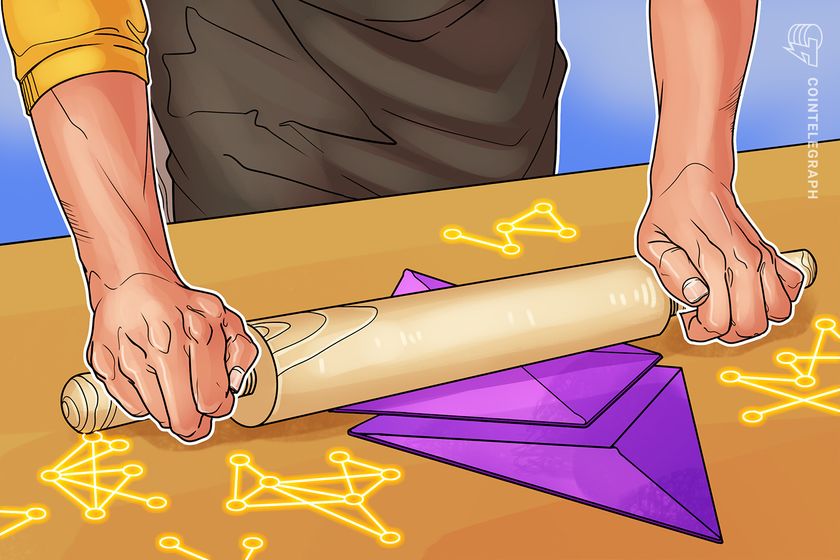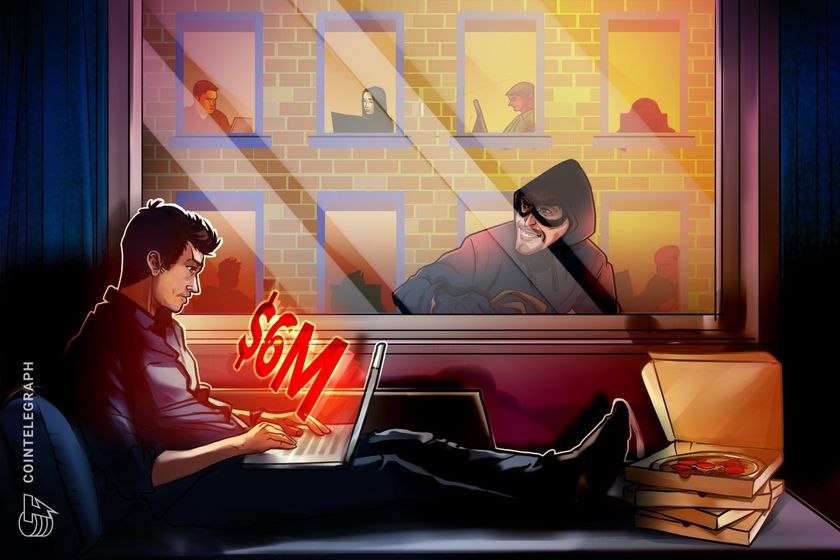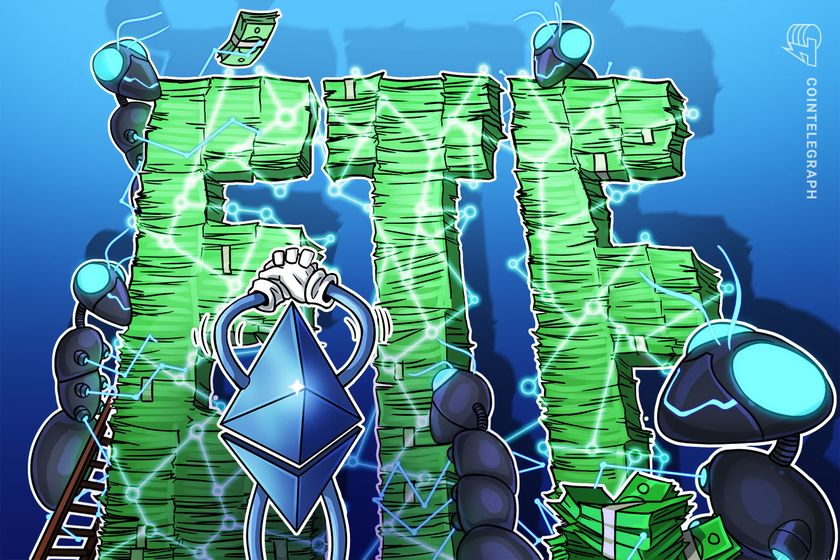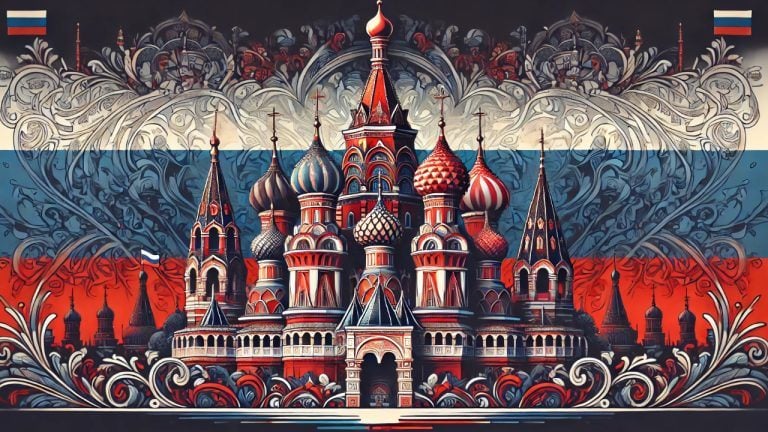Nifty News: Luxury brands join Decentraland’s Metaverse Fashion Week

From Dolce & Gabanna to Giuseppe Zanotti, major fashion companies took to Ethereum-run Decentraland to interact with new consumers in this virtual experiment.
This past weekend, Decentraland hosted the Metaverse Fashion Week, or MVFW, a four-day digital fashion event that staged wearables on virtual runways, organized discussion panels, and housed shopping experiences. A lineup of both legacy luxury labels and digital brands participated, including Dolce & Gabbana, Etro, Tommy Hilfiger, Estée Lauder, and Elie Saab.
Meanwhile, digital-native fashion houses Auroboros, DressX, and republique hosted immersive spaces and stores within specific fashion districts, designated by coordinates on a map. Just like New York Fashion Week events may take place across different boroughs of the city, so did Decentraland’s MVFW materialize across different districts.

Dolce & Gabbana puts on a literal catwalk
Dolce & Gabanna unveiled 20 full looks of Metaverse wearables that they specifically designed for the Metaverse Fashion Week. Playing on the term catwalk, they used cat-faced avatar models to showcase the collection. After the show, the full collection became viewable in an exclusive Dolce & Gabbana pop-up in Decentraland’s Luxury Fashion District, curated by luxury-focused marketplace UNXD. UNXD, as well as Vogue Arabia, were core partners of Decentraland in curating the traditional fashion brands at MVFW.
Recently, Dolce & Gabbana sold a series of NFTs for about $6 million as part of another collection co-created with UNXD. D&G’s next step into the metaverse is the launch of the DGFamily NFT Community, which intends to give members exclusive access to physical and digital drops and wearables. DGFamily holders will receive airdrops from this MVFW collection.
#DolceGabbana showcases at the First Metaverse Virtual Fashion Week hosted by @decentraland in partnership with @unxd_nft.
Enter the metaverse and explore the Dolce&Gabbana pop-up at https://t.co/intOw2lxfy pic.twitter.com/pjo7rn4BMQ
— Dolce & Gabbana (@dolcegabbana) March 25, 2022
Etro debuts upcoming collection on the runway
Etro, on the other hand, decided to preview a real-world collection for their first fashion show in the metaverse. Called Liquid Paisley, the collection consists of women’s and men’s ready-to-wear looks worn by 20 avatar models and celebrates one of the fashion house’s iconic prints and color palettes. It also includes a range of must-have accessories, bags, hats, and shoes. In partnership with UNXD, Etro also set up a pop-up boutique in the UNXD Luxury District full of other designer brand names.
@EtroOfficial revealed the Liquid Paisley collection at the Metaverse Fashion Week, in partnership with @UNXD_NFT. Be sure to visit the boutique in the Luxury District!
These wearables will be airdropped to Decentraland users. Submit your wallet address below by March 31! pic.twitter.com/hHqicwZh1i— Decentraland (@decentraland) March 26, 2022
Cointelegraph spoke to Shashi Menon, the Dubai-based publisher of Vogue Arabia and UNXD’s co-founder and CEO, about why so many luxury brands are jumping onto the Metaverse bandwagon. Menon said the idea to launch a proper fashion week “was the best starting point because it resembled something familiar,” and according to him, “The best way to get people into a space they are unfamiliar with is to use something that they are familiar with.”
Italian shoe brands enter Decentraland
Two other Italian brands, Hogan and Giuseppe Zanotti, debuted NFT collections. In collaboration with Exclusible, a platform for luxury NFTs and Metaverse activations, TOD’S Group-owned Hogan dropped the “Untraditional” NFT collection of the brand’s first-ever sneaker. They set up a pop-up store residency in Decentraland, within Boson Protocol’s metaverse marketplace, in order to sell its physical products as redeemable NFTs within the Boson Portal. The creative studio Braw Haus chose the five NFT artists that designed the collection.

Similarly, Italian footwear designer Giuseppe Zanotti released a series of sneaker NFTs for MVFW in partnership with the blue-chip NFT community, DeadFellaz, and the neuno NFT marketplace. This collaboration offers limited-edition digital-only Giuseppe Zanotti “COBRAS” sneakers. Zanotti originally released the physical version of these bright green shoes with the snake detail in 2021. Additionally, while Deadfellaz is also offering physical garments through Boson Protocol, neuno is giving its neuCard VIP members a green bucket hat, two shirts, and a bomber jacket to go with the COBRAS.

Republique sells luxury accessories
Metaverse-ready fashion house, republiqe partnered with a Paris-based e-commerce platform called Monnier to launch a virtual accessories store within Decentraland’s Luxury Fashion District. American COACH was among the brands in the store to convert an existing physical item into an NFT wearable. republiqe helped to create COACH’s first-ever NFT of its “Pillow Tabby Shoulder” handbag.
Known as a clothing brand, republiqe showcased five bespoke outfits for its store, and worked with other brands including Axel Arigato, Ester Manas, Wandler, and Osoi. This virtual shop allows Decentraland users to walk in, view, and purchase any of the designer apparel.
Metaverse Fashion Week has finally arrived!!!
Our store in Decentraland with MONNIER Paris goes live at 4pm today!!
We have a number of NFT wearables available from top brands, this is not to be missed!!!
to come and experience for yourself head to https://t.co/AIcEGb3hGt pic.twitter.com/NZsNPpZq5U
— republiqe clothing (@RepubliqeC) March 24, 2022
Other Nifty News
Fashion NFTs are clearly a big trend as more and more mainstream designers are debuting NFT collections in the Metaverse this year. And as fashionistas increasingly use NFTs to express their style on Web3 platforms and in the real world, the future of digital fashion will be likely favorable to those with the first-mover advantage.
In addition to runway shows in Decentraland, DressX worked with Fendi to design digital garments used in an interview spread for the fashion magazine Haute Living in January. It was the first fashion magazine cover in the United States to display digital luxury designer garments on a human, and the designs could then be purchased directly on the Fendi website.









